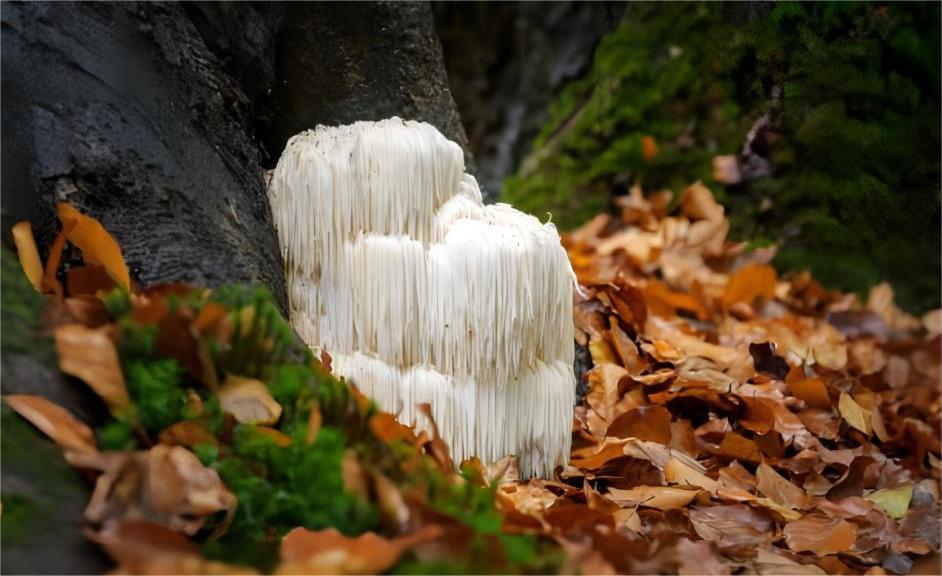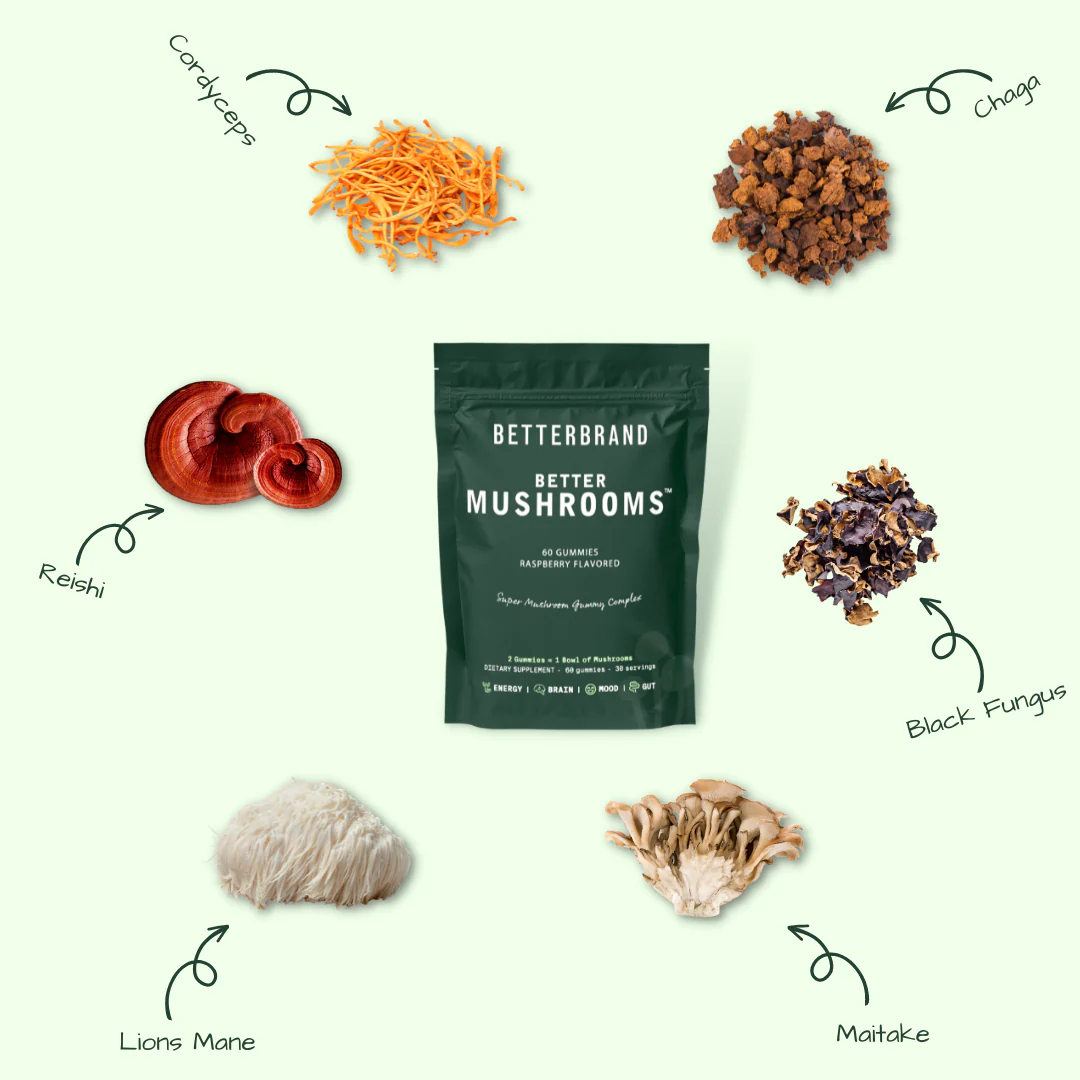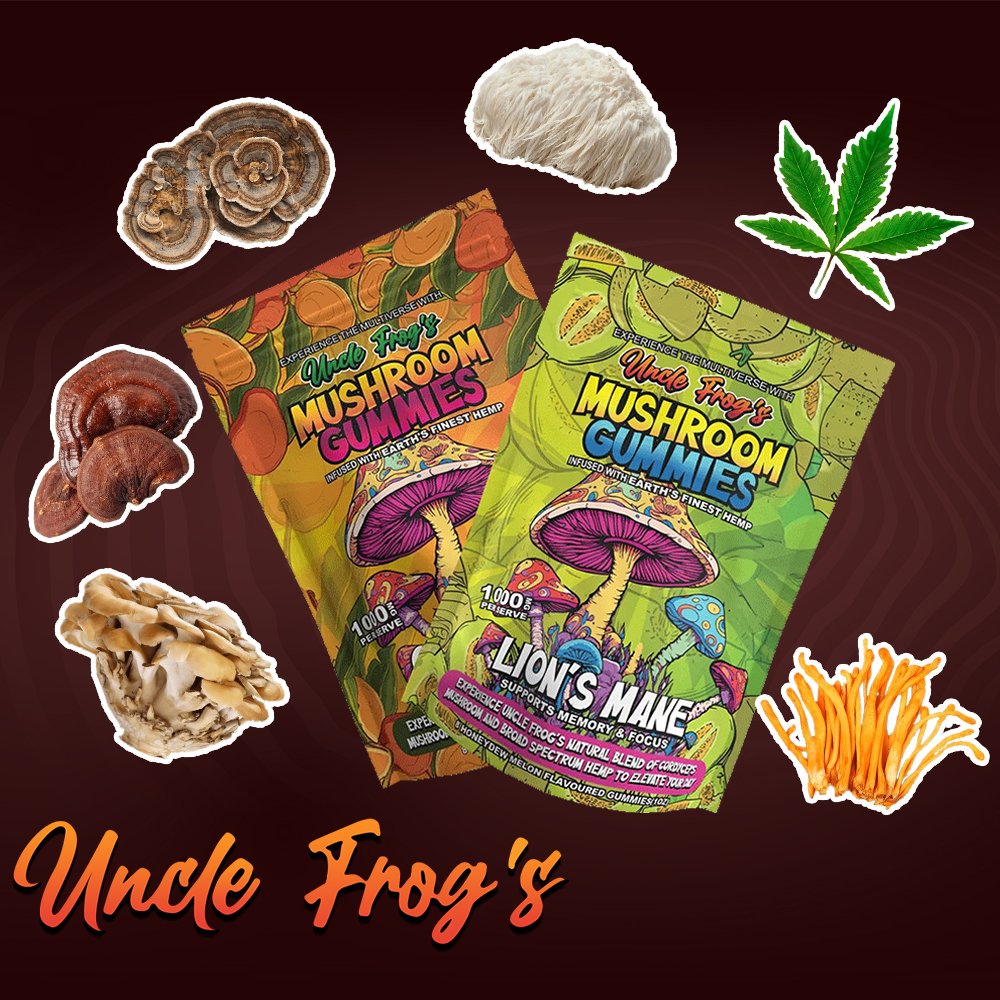Lion’s Mane Mushroom Guide: Benefits & Side Effects

Lion's Mane Mushrooms: What Are They?
Lion’s mane mushrooms are mushroomy fungi with a natural bulk and an appearance which will strike you which the same awe of seeing something from another world. While generally thinking of them as one type of mushrooms, they are actually three different species. The most common to find is the Hericium erinaceus.
Lion’s mane mushrooms are normally white, have a pom-pom appearance and is being used as both food and medicine. They are commonly used in many Asian countries, including Korea, Japan, India and China.
Lion’s mane mushrooms are available fresh at grocery stores, in prepared dishes at restaurants, and from a variety of brands as supplements.
The flavour of lion’s mane mushrooms is often likened to seafood. They can also be consumed in their raw form or dried, cooked etc The mushroom is also available in the form of powder, liquid and/or capsules as a complement.
Lion’s mane mushrooms contain vitamins like thiamine, riboflavin and niacin. They also provide a variety of minerals such as manganese, zinc and potassium that are essential.
Lion’s mane has been shown in research to have a number of health benefits.
Lion's Mane Benefits
Lion’s mane mushrooms date back centuries in traditional Chinese medicine. This traditional medicine has also been used in lab and animal studies to suggest that it may be helpful for a host of conditions. But human studies are scarce, and there is no product made from these mushrooms currently approved to treat any condition.
Here is some preliminary evidence that lion’s mane mushrooms can help with these processes:
Antioxidant & Anti-inflammatory
Chronic inflammation and the negative impacts of free radicals — which are unstable molecules in our bodies involved in heart disease, arthritis, cancer, and many other health issues — are accompanying markers of a number of diseases. Though lion’s mane contains bioactive substances that have beneficial effects on the body such as potentially powerful antioxidants, which are molecules that help combat oxidative stress in your cells. They also slivers of compounds that animal studies indicate have anti-inflammatory properties.
Fighting dementia and other brain diseases
Recent research in animals and tiny humans hints that lion’s mane mushrooms may also promote the release of proteins that stimulate brain cell growth, warding off symptoms of cognitive decline as part of Alzheimer’s disease.
An example of receipt of only tablets containing Hericium erinaceus powder reported that 30 older adults with mild cognitive impairment who received Hericoshield (a mixture in hericenones and polysaccharides extracted from the basidiocarps together) for 4 months showed a transient quotient improvement on some cognitive tests. In mice, they have also been found to make it more difficult for the effects of Alzheimer’s disease and changes in the brain associated with the disease.
Another small human study showed that taking lion’s mane mushroom powder enhanced speed of mental performance in young adults.
In lab studies, the mushrooms have been found to be rich in hericenones and erinacines—two compounds that can induce brain cell growth.
Help with anxiety and depression
Additionally, as we mentioned in our original article: Lion’s mane extracts can be a potential treatment for mental health conditions. This question was tested in a study that looked at Japanese women suffering from an array of health conditions, many complaining about menopausal symptoms and poor sleep. After 4 weeks, one group was given cookies containing lion’s mane extracts while the others received a placebo for an additional 4 weeks.
Women who consumed the lion’s mane cookies reported significantly less depressive symptoms and stress compared to those in the placebo group.
Possible beneficial compounds in lion’s mane mushrooms could be hericenones and erinacines, which are believed to relate to an active antidepressant-like effect. They influence the release of nerve growth factor (NGF), which is a substance that helps brain cells stay alive and grow. Traditional antidepressants may act by changing NGF levels.
However, no direct clinical comparison of lion’s mane mushroom with depression drugs was made in the study.
Nerve regeneration
Lion’s mane contains compounds with medicinal properties capable of promoting the growth and survival of new and existing brain and body nerve cells. Even though they can enter the brain from the bloodstream – a process that is often restricted by so-called blood-brain barrier – these compounds, unlike some experimental treatments, appear to work, at least in animal studies.
That has sparked increasing interest in experimenting with the mushrooms for a laundry list of conditions, including:
- Stroke
- Parkinson’s disease
- Huntington’s disease
- Multiple sclerosis
- Creutzfeldt-Jakob disease
- Nerve injuries
Managing diabetes
Lion’s mane mushrooms were found to reduce blood sugar levels while simultaneously increasing insulin and glycosylated hemoglobin levels in diabetic rats from a laboratory test. This could be partly because of the antioxidants in the mushrooms, according to researchers.
Animal research also suggests that the mushrooms may improve diabetic nerve pain.
Fighting stomach ulcers
In the realm of traditional medicine, mushrooms have long been used to help soothe the gut and this is why many people continue using them for their potential stomach health-promoting properties. In a study of rats, lion’s mane extract has been shown to reduce the severity of ulcers in some cases, by limiting oxidative damage and increasing mucus production in the stomach lining. Highest doses worked the best in protecting rats, according to the researchers.
Similarly, lab and animal studies have shown that reishi mushrooms can inhibit the growth of H. pylori — a type of bacteria known to cause stomach ulcers in certain individuals.
Lion's Mane Supplements
Many supplements with lion’s mane mushrooms are available for purchase. Although the supplement labels might make all sort of health claims, dietary supplements in the U.S. are largely unregulated products without nearly the same level of proof regarding safety or effectiveness as is required for drugs approved by FDA. There’s nothing to suggest any mushrooms are safe and effective treatments for anything in the same way that other products have been proven through such rigorous studies.
The FDA has told several individuals to cease claiming that their lion’s mane supplement is “great for brain injury recovery” and can “reduce symptoms of anxiety & depression.
Lion’s mane mushroom powder
Lion’s mane supplements are available in both the most common forms of pulverized powders being prepared either from the mushroom head, which is referred to as fruiting body or at times mycelium called root. It comes in loose powder form that you can mix with food or drinks, or it comes in capsule form. Liquid extracts (which are usually made by boiling the fruiting body in water or alcohol)
Dosage
There is no standard dose of lion’s mane mushrooms since the fungi have not gone through extensive human study. This has been used in studies to varying degrees. In one study, 250 mg of mushroom powder was given three times a day (a total of less than 1 gram) to patients with mild cognitive impairment. In a separate trial, women experiencing symptoms of menopause were given 2 grams per day. A clinical trial of people with obesity designed to test mood and sleep, administered 500 milligrams, three times a day for a total of 1.5 grams.
Not only may the products be very different in their makeup (we have no way to know exactly what ingredients a given product contains), but they can also differ from store to store; some potentially less reputable sellers could stock their shelves with watered-down or even fake versions of popular remedies, for example. Read the label and use as directed. Consult your doctor to see what is right for you.
Side effects of Lion's Mane Mushroom
Unfortunately, there is limited information about the safety of lion’s mane for long-term consumption and as a supplement or possible side effects.
Adverse Reactions A case report of potential allergic responses to lion’s mane mushrooms has been noted. One person suffered breathing difficulties. In another, a man broke out in hives that also resolved when ingesting the mushrooms was discontinued. Consult with your doctor before including or ingesting lion’s mane mushrooms in food and supplements, especially if you have a history of allergies, asthma and other medical conditions.
A few mushroom supplement labels contain cautionary language that advise against use while pregnant, breastfeeding or in preparation for surgery. The adverse effects from types of mushrooms include nausea, vomiting, diarrhea.izziness skin irritation headache GI disturbances allergic rections etc.
Takeaways
Lion’s mane mushrooms have a long history of medicinal use. According to modern science, the fungi may be of benefit in managing dementia, nerve damage treatment, diabetes control and ulcer prevention. But the research on humans is too small to tell whether they are realizing any of those benefits.
Lion's Mane FAQ
Medicinal Drug LION’S MANE MUSHROOM?!
The lion’s mane mushroom is not a drug. This may be obtained through its food source or as a dietary supplement. These statements have not been evaluated by the Food and Drug Administration (FDA).
Is lion’s mane illegal?
Lion’s mane mushrooms and lion’s mane mushroom products are typically legal — however, if you wish to pick your own wild mushrooms (including this species), please see any restrictions on which type may be collected legally in your state.
Reference
Share:



